Former military president Ibrahim Babangida has asked Nigerians to co-operate with President Muhammadu Buhari until his tenure ends — but vote for a new generation of leaders in 2019.
In a press statement released on Sunday by Kassim Afegbua, his spokesman, Babangida said it was time to sacrifice “personal ambition” for the “national interest”His statement is coming on the heels of a similar intervention by former president Olusegun Obasanjo who asked Buhari not to seek re-election.
Babangida, who overthrew Buhari in 1985 and ruled till 1993, said: “In the fullness of our present realities, we need to cooperate with President Muhammadu Buhari to complete his term of office on May 29th, 2019 and collectively prepare the way for new generation leaders to assume the mantle of leadership of the country. While offering this advice, I speak as a stakeholder, former president, concerned Nigerian and a patriot who desires to see new paradigms in our shared commitment to get this country running.
“While saying this also, I do not intend to deny President Buhari his inalienable right to vote and be voted for, but there comes a time in the life of a nation, when personal ambition should not override national interest. This is the time for us to reinvent the will and tap into the resourcefulness of the younger generation, stimulate their entrepreneurial initiatives and provoke a conduce environment to grow national economy both at the micro and macro levels.”
He said the 2019 elections offer “a unique opportunity for Nigerians”.
“The next election in 2019 therefore presents us a unique opportunity to reinvent the will and provoke fresh leadership that would immediately begin the process of healing the wounds in the land and ensuring that the wishes and aspirations of the people are realized in building and sustaining national cohesion and consensus,” he said.
Babangida expressed worries about the state of the nation, pointing out incessant clashes and killings across the country.
“In the past few months also, I have taken time to reflect on a number of issues plaguing the country. I get frightened by their dimensions. I get worried by their colourations. I get perplexed by their gory themes. From Southern Kaduna to Taraba state, from Benue state to Rivers, from Edo state to Zamfara, it has been a theatre of blood with cake of crimson. In Dansadau in Zamfara state recently, North-West of Nigeria, over 200 souls were wasted for no justifiable reason. The pogrom in Benue state has left me wondering if truly this is the same country some of us fought to keep together,” he said.
“I am alarmed by the amount of blood-letting across the land. Nigeria is now being described as a land where blood flows like river, where tears have refused to dry up. Almost on a daily basis, we are both mourning and grieving, and often times left helpless by the sophistication of crimes. The Boko Haram challenge has remained unabated even though there has been commendable effort by government to maximally downgrade them. I will professionally advise that the battle be taken to the inner fortress of Sambisa Forest rather than responding to the insurgents’ ambushes from time to time.”
THE FULL TEXT OF THE STATEMENT
TOWARDS A NATIONAL REBIRTH
In the past few months and weeks, I have played host to many concerned Nigerians who have continued to express legitimate and patriotic worry about the state of affairs in the country. Some of them have continued to agonize about the turn of events and expressly worried why we have not gotten our leadership compass right as a country with so much potential and opportunity for all. Some, out of frustration, have elected to interrogate the leadership question and wondered aloud why it has taken this long from independence till date to discover the right model on account of our peculiarities. At 57, we are still a nation in search of the right leadership to contend with the dynamics of a 21st century Nigeria.
Having been privileged to preside over this great country, interacted with all categories of persons, dissected all shades of opinions, understudied different ethnic groupings; I can rightfully conclude that our strength lies in our diversity. But exploring and exploiting that diversity as a huge potential has remained a hard nut to crack, not because we have not made efforts, but building a consensus on any national issue often has to go through the incinerator of those diverse ethnic configurations. Opinions in Nigeria are not limited to the borders of the political elite; in fact, every Nigerian no matter how young or old, has an opinion on any national issue. And it is the function of discerning leadership to understand these elemental undercurrents in the discharge of state responsibilities.
WHERE WE ARE
There is no gainsaying the fact that Nigeria is at a major crossroads at this moment in its history; the choices we are going to make as a nation regarding the leadership question of this country and the vision for our political, economic and religious future will be largely determined by the nature or kind of change that we pursue, the kind of change that we need and the kind of change that we get. A lot depends on our roles both as followers and leaders in our political undertakings. As we proceed to find the right thesis that would resolve the leadership question, we must bear in mind a formula that could engender national development and the undiluted commitment of our leaders to a resurgence of the moral and ethical foundations that brought us to where we are as a pluralistic and multi-ethnic society.
Nigeria, before now, has been on the one hand our dear native land, where tribes and tongues may differ but in brotherhood we stand, and on the other hand a nation that continues to struggle with itself and in every way stumbling and willful in its quest to become a modern state, starting from the first republic till date. With our huge investments in the African emancipation movements and the various contributions that were made by our leadership to extricate South Africa from colonial grip, Nigeria became the giant of Africa during that period. But having gone through leadership failures, we no longer possess the sobriety to claim that status. And we all are guilty.
We have experimented with Parliamentary and Presidential systems of government amid military interregnum at various times of our national history. We have made some progress, but not good enough to situate us on the pedestal we so desirously crave for. It is little wonder therefore that we need to deliberately provoke systems and models that will put paid to this recycling leadership experimentation to embrace new generational leadership evolution with the essential attributes of responsive, responsible and proactive leadership configuration to confront the several challenges that we presently face.
In 2019 and beyond, we should come to a national consensus that we need new breed leadership with requisite capacity to manage our diversities and jump-start a process of launching the country on the super highway of technology-driven leadership in line with the dynamics of modern governance. It is short of saying enough of this analogue system. Let’s give way for digital leadership orientation with all the trappings of consultative, constructive, communicative, interactive and utility-driven approach where everyone has a role to play in the process of enthroning accountability and transparency in governance.
I am particularly enamored that Nigerians are becoming more and more conscious of their rights; and their ability to speak truth to power and interrogate those elected to represent them without fear of arrest and harassment. These are part of the ennobling principles of representative democracy. As citizens in a democracy, it is our civic responsibility to demand accountability and transparency. Our elected leaders owe us that simple but remarkable accountability creed. Whenever we criticize them, it is not that we do not like their guts; it is just that as stakeholders in the political economy of the country, we also carry certain responsibilities.
In the past few months also, I have taken time to reflect on a number of issues plaguing the country. I get frightened by their dimensions. I get worried by their colourations. I get perplexed by their gory themes. From Southern Kaduna to Taraba state, from Benue state to Rivers, from Edo state to Zamfara, it has been a theatre of blood with cake of crimson. In Dansadau in Zamfara state recently, North-West of Nigeria, over 200 souls were wasted for no justifiable reason. The pogrom in Benue state has left me wondering if truly this is the same country some of us fought to keep together. I am alarmed by the amount of blood-letting across the land. Nigeria is now being described as a land where blood flows like river, where tears have refused to dry up. Almost on a daily basis, we are both mourning and grieving, and often times left helpless by the sophistication of crimes. The Boko Haram challenge has remained unabated even though there has been commendable effort by government to maximally downgrade them. I will professionally advise that the battle be taken to the inner fortress of Sambisa Forest rather than responding to the insurgents’ ambushes from time to time.
THINKING ALOUD
In the fullness of our present realities, we need to cooperate with President Muhammadu Buhari to complete his term of office on May 29th, 2019 and collectively prepare the way for new generation leaders to assume the mantle of leadership of the country. While offering this advice, I speak as a stakeholder, former president, concerned Nigerian and a patriot who desires to see new paradigms in our shared commitment to get this country running. While saying this also, I do not intend to deny President Buhari his inalienable right to vote and be voted for, but there comes a time in the life of a nation, when personal ambition should not override national interest. This is the time for us to reinvent the will and tap into the resourcefulness of the younger generation, stimulate their entrepreneurial initiatives and provoke a conduce environment to grow national economy both at the micro and macro levels.
Contemporary leadership has to be proactive and not reactive. It must factor in citizens’ participation. Its language of discourse must be persuasive not agitated and abusive. It must give room for confidence building. It must build consensus and form aggregate opinion on any issue to reflect the wishes of the people across the country. It must gauge the mood of the country at every point in time in order to send the right message. It must share in their aspirations and give them cause to have confidence in the system. Modern leadership is not just about “fighting” corruption, it is about plugging the leakages and building systems that will militate against corruption. Accountability in leadership should flow from copious examples. It goes beyond mere sloganeering. My support for a new breed leadership derives from the understanding that it will show a marked departure from recycled leadership to creating new paradigms that will breathe fresh air into our present polluted leadership actuality.
My intervention in the governance process of Nigeria wasn’t an accident of history. Even as a military government, we had a clear-cut policy agenda on what we needed to achieve. We recruited some of the best brains and introduced policies that remain some of the best in our effort to re-engineer our polity and nation. We saw the future of Nigeria but lack of continuity in government and of policies killed some of our intentions and initiatives. Even though we did not provide answers to all the developmental challenges that confronted us as at that time, we were not short of taking decisions whenever the need arose.
GROWING INSECURITY ON OUR HANDS
The unchecked activities of the herdsmen have continued to raise doubt on the capacity of this government to handle with dispatch, security concerns that continue to threaten our dear nation; suicide bombings, kidnappings, armed banditry, ethnic clashes and other divisive tendencies. We need to bring different actors to the roundtable. Government must generate platform to interact and dialogue on the issues with a view to finding permanent solutions to the crises. The festering nature of this crisis is an inelegant testimony to the sharp divisions and polarizations that exist across the country. For example, this is not the first time herdsmen engage in pastoral nomadism but the anger in the land is suggestive of the absence of mutual love and togetherness that once defined our nationality. We must collectively rise up to the occasion and do something urgently to arrest this drift. If left unchecked, it portends danger to our collective existence as one nation bound by common destiny; and may snowball into another internecine warfare that would not be good for nation-building.
We have to reorient the minds of the herdsmen or gun-men to embrace ranching as a new and modern way to herd cattle. We also need to expand the capacity of the Nigeria Police, the Nigeria Army, the Navy and Air Force to provide the necessary security for all. We need to catch up with modern sophistication in crime detection and crime fighting. Due to the peculiarity of our country, we must begin community policing to close the gaps that presently exist in our policing system. We cannot continue to use old methods and expect new results. We just have to constructively engage the people from time to time through platforms that would help them ventilate their opinions and viewpoints.
THE CHANGE MANTRA
When the ruling party campaigned with the change mantra, I had thought they would device new methods, provoke new initiatives and proffer new ways to addressing some of our developmental problems. By now, in line with her manifesto, one would have thought that the APC will give fillip to the idea of devolution of powers and tinker with processes that would strengthen and reform the various sectors of the economy. Like I did state in my previous statement late last year, devolution of power or restructuring is an idea whose time has come if we must be honest with ourselves. We need to critically address the issue and take informed positions based on the expectations of the people on how to make the union work better. Political parties should not exploit this as a decoy to woo voters because election time is here. We need to begin the process of restructuring both in the letter and spirit of it.
For example, I still cannot reconcile why my state government would not be allowed to fix the Minna-Suleja road, simply because it is called Federal Government road, or why state governments cannot run their own policing system to support the Federal Police. We are still experiencing huge infrastructural deficit across the country and one had thought the APC-led Federal Government would behave differently from their counterparts in previous administrations. I am hesitant to ask; where is the promised change?
LOOKING AHEAD
At this point of our national history, we must take some rather useful decisions that would lead to real development and promote peaceful co-existence among all the nationalities. We must be unanimous in what we desire for our country; new generation leadership, result-driven leadership, sound political foundation, demonetization of our politics, enhanced internal democracy, elimination of impunity in our politics, inclusiveness in decision-making, and promotion of citizens’ participation in our democratic process. The search for that new breed leadership must start now as we prepare for 2019 election.
I get worried when politicians visit to inform me about their aspirations and what you hear in terms of budgetary allocations for electoral contest does not cover voters’ education but very ridiculous sub-heads. A typical aspirant in Nigeria draws up budget to cover INEC, Police, Army and men and officers of the Civil Defense, instead of talking of voters’ education, mobilization and sensitization. Even where benchmarks are set for electoral expenditure, monitoring and compliance are always difficult to adhere to. We truly need to reform the political system. And we must deliberately get fresh hands involved for improved participation.
We need new ways and new approaches in our political order. We need a national rebirth. We need a rebranded Nigeria and rebranded politics. It is not so much for the people, but for the institutions that are put in place to promote our political engagements. We must strengthen the one man one vote mantra. It is often ridiculous for me when people use smaller countries in our West Africa sub-region as handy references of how democracy should be. It beggars our giant of Africa status.
The next election in 2019 therefore presents us a unique opportunity to reinvent the will and provoke fresh leadership that would immediately begin the process of healing the wounds in the land and ensuring that the wishes and aspirations of the people are realized in building and sustaining national cohesion and consensus. I pray the Almighty Allah grant us the gift of good life to witness that glorious dawn in 2019. Amen. I have not written an open letter to the President, I have just shared my thoughts with fellow compatriots on the need to enthrone younger blood into the mainstream of our political leadership starting from 2019.
You may like
-


Why I Approved Emefiele’s Naira Redesign Policy — Buhari
-
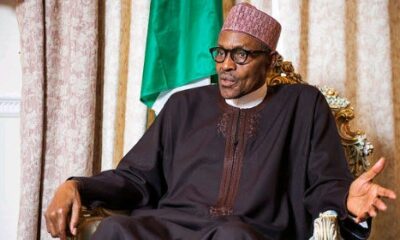

I Did My Best As President, Nigerians Are Too Difficult To Govern — Buhari
-
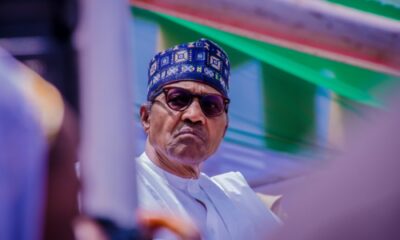

I Don’t Miss Being President, Says Buhari
-
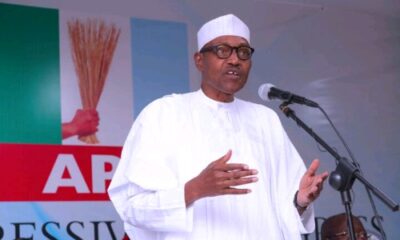

Off-Cycle Polls: Buhari Congratulats APC’s Governors-Elect, Says “We’re The Biggest Political Party”
-
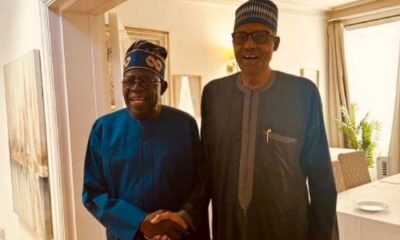

ECOWAS Chairmanship: Buhari Congratulates Tinubu, Says It’s ‘Enormous Responsibility”
-
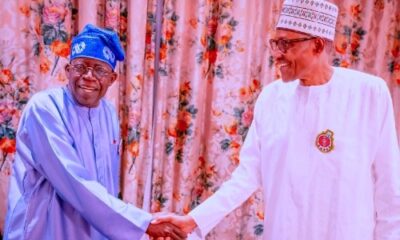

I Delayed Petrol Subsidy Removal To Allow Tinubu, APC Win Election — Buhari
BIG STORY
No Effective Governance Without Full Local Government Autonomy — Femi Gbajabiamila
Published
1 day agoon
July 12, 2025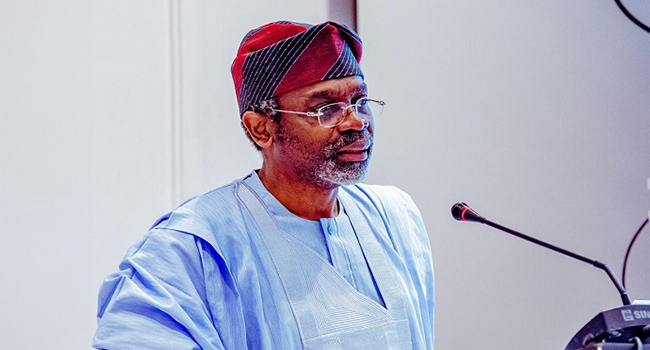
The Chief of Staff to President Bola Tinubu, Femi Gbajabiamila, has stated that governance at the local government level cannot be effective without complete autonomy.
He made the remark while addressing journalists after voting in the Lagos State local government elections in Surulere on Saturday.
When asked about the progress of implementing the LG autonomy ruling by the Supreme Court one year after it was delivered, Gbajabiamila described the process as ongoing and said it would be completed with time.
Gbajabiamila said, “The ruling was welcome by everybody. It’s the execution of that ruling and the implementation of that ruling that we are still trying to dot the Is and cross the Ts.
“I believe in a matter of time, we will realise full autonomy. There cannot be effective governance without full autonomy. That’s what we are working toward.”
In July 2024, the Supreme Court granted autonomy to all 774 local government areas across the country following a case filed by the federal government through the Minister of Justice and Attorney General of the Federation. However, the ruling is yet to be fully implemented.
Following the judgement, the Senate urged state and local governments to immediately adhere to the court’s directive, especially regarding local government accounts and direct fund disbursements.
The Senate also moved to amend relevant sections of the Constitution to ensure full local government autonomy nationwide.
The announcement was made by Deputy Senate President Senator Jibrin Barau, after lawmakers emerged from a closed-door session where they discussed alleged efforts by some state governments to bypass the Supreme Court’s ruling on July 11.
BIG STORY
Jitters In Osun APC, PDP Over Adeleke’s Defection Plan
Published
1 day agoon
July 12, 2025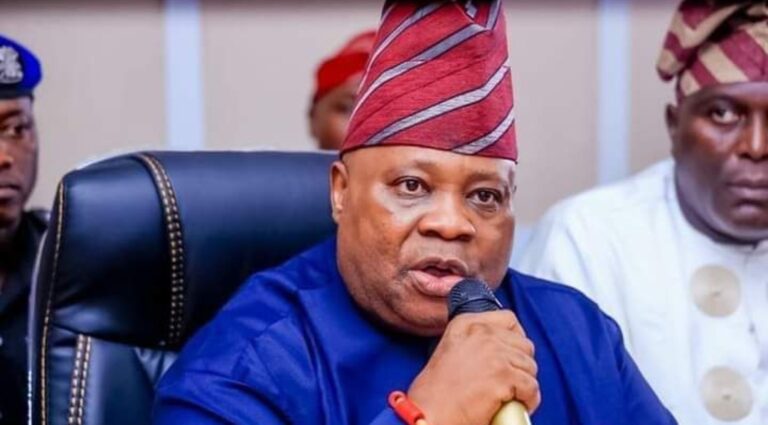
Panic has gripped both the Peoples Democratic Party and the All Progressives Congress in Osun State amid reports that Governor Ademola Adeleke may be planning to leave the PDP for the APC.
According to findings by The Punch, several close associates and appointees of the governor confirmed that Adeleke is close to finalising the defection.
The development has unsettled the APC, prompting a protest against Adeleke on Friday. However, in a statement by his spokesperson, Olawale Rasheed, the governor denied having any such intention.
Speculation about Adeleke’s defection began in June after he paid a visit to President Bola Tinubu at his Bourdillon residence in Lagos.
The governor was accompanied by his brother, billionaire businessman Adedeji Adeleke, and his nephew, Afrobeats artist David Adeleke, also known as Davido.
News of the visit was made public in a post on X by Tinubu’s Special Assistant on Social Media, Dada Olusegun.
Although the purpose of the meeting was not disclosed, the release of photos showing Tinubu and his wife in a warm exchange with the Adelekes triggered tension in both the Osun PDP and APC camps.
The rumour gained renewed attention this week following a series of cryptic posts by some of Adeleke’s aides on social media.
Close associates confirm move, APC ticket offer
Insiders in the governor’s cabinet, including a commissioner and two special advisers, told our correspondents that Adeleke had concluded plans to join the APC.
The commissioner, who spoke on condition of anonymity due to the sensitivity of the matter, said Adeleke had briefed some of his allies in his cabinet and the House of Assembly about his defection plan.
“Mr Governor will join the APC, but the official declaration will not be now. His planned defection is a result of political threats, the Federal Government withheld local government funds, and there are emerging threats to the businesses of his billionaire brother, Dr Deji Adeleke. So, there are many things at stake,” he said.
A senior official of the APC in the state also confirmed that the governor was consulting with APC leaders, but said his fate hangs on Tinubu’s move.
“Adeleke has been consulting many APC leaders. He has employed some mercenaries to lobby the President. But Baba Bisi Akande and Oyetola have not consented to his defection. The President will need to convince them before the governor will declare his defection,” the APC official said on Thursday.
In a symbolic move, the Osun PDP Director of Media and Information, Oladele Bamiji, who is also a Senior Special Assistant to Adeleke, posted “On Your Mandate!” on his Facebook timeline around 5 pm on Thursday.
The slogan is synonymous with Tinubu, having originated from his loyalists in Lagos State.
Bamiji’s post triggered reactions from other Facebook users, including APC members kicking against the move.
One of the governor’s special advisers, who also spoke on condition of anonymity due to the sensitivity of the matter, said the governor’s apparent uncertainty over the validity of his second-term ticket in the face of the PDP crisis might have triggered his proposed defection.
“INEC has released the timetable for the 2026 governorship election, and the PDP primary is coming up in September. Who is going to sign Adeleke’s nomination form amid the ongoing crisis in the PDP?
“We are all afraid that whatever happens in the PDP regarding the Osun election may be subject to litigation, which may invalidate the governor’s nomination and victory. That is why the governor wants to leave,” the aide said.
Also subtly confirming the move, another SSA to Adeleke, Olalekan Badmus, tweeted on his X handle on Friday: “After we all agreed to this, the next question is where?
“Governor Adeleke is currently consulting and evaluating all options on the table, including the peculiarities of all current political parties. Reports of imminent arrival at a particular party are at best speculative.”
Amid growing confirmation from the governor’s close associates, The Punch gathered that Tinubu’s Chief of Staff, Femi Gbajabiamila, and members of the President’s immediate family reportedly facilitated Adeleke’s move to the APC.
Adeleke remains in PDP – Spokesman
Reacting to the defection rumour, the spokesperson for the Osun State Government, Rasheed, said Adeleke remained in the PDP and was not considering joining the APC.
In a statement on Thursday, Rasheed quoted Adeleke as saying, “I assure the good people of Osun that I remain part and parcel of the PDP family. I am not defecting to any party.”
He said the governor reaffirmed his commitment to the implementation of his administration’s five-point agenda and urged the public to disregard what he described as “fake news,” while assuring continued delivery of good governance and democratic dividends.
Also reacting, the National Secretary of the APC, Ajibola Basiru, said the party’s national secretariat was unaware of any defection plan by the Osun governor.
In an interview (with Saturday Punch), Basiru said, “The only thing I can say is that I’m not aware of Adeleke’s so-called planned defection as the National Secretary of the party. All other things are hypothetical for now. I cannot be reacting based on social media frenzy!”
Similarly, the spokesperson for the Osun APC, Kola Olabisi, said the party leadership in the state had no knowledge of any move by Adeleke to join their ranks.
“It is still in the realm of speculation. The leadership of the APC in Osun, led by Sooko Tajudeen Lawal, is not aware of the governor’s defection plan,” he said.
When asked whether the party would welcome Adeleke, Olabisi replied, “Only the leadership of the party will speak on that.”
Panic in APC, PDP camps
Despite official denials, there is palpable tension among members of both the APC and PDP in Osun State.
It was gathered that the development has unsettled many APC members, particularly loyalists of former Governor Gboyega Oyetola, who fear that Adeleke’s entry into the APC could jeopardise the chances of their governorship aspirant, Bola Oyebamiji.
On the PDP side, some members have also expressed concern that the party may suffer significant setbacks if Adeleke defects, as the Adeleke dynasty is regarded as the party’s primary financier in Osun State.
It was noted that several APC members took to social media, especially Facebook, to express displeasure over the alleged plan.
A former Special Adviser to ex-Governor Oyetola on Education, Alhaji Jamiu Olawumi, wrote on his Facebook timeline on Thursday, “The Adeleke Challenge! If, as a governor, you have delivered, is it not shameful trying to run away from your own party?”
Another Oyetola loyalist, Adedeji Adebayo, also took to Facebook to criticise APC National Secretary, Basiru, for saying that President Tinubu would determine the APC’s governorship candidate in 2027, rather than speaking out against Adeleke’s rumoured defection.
He wrote, “The Adelekes’ agents in the APC are celebrating, granting media interviews about the phantom defection of the so-called ‘omo-gba-feeder’. Yes, the same omo-gba-feeder. They don’t care if it goes to a dullard since it’s not coming to them. That is the kind of wanton politics they play. Meanwhile, it is what it is: phantom defection. If Obente defects to APC, perhaps it is the APC AISU Chapter.”
‘No automatic ticket for gov’
On Friday, some Osun APC members staged a peaceful protest at the party’s state secretariat in Osogbo, insisting that if Adeleke defects, he should not be given an automatic governorship ticket.
Led by a member of the APC, Taofeek Afolabi, the protesters, mostly youths, said it would be unfair to hand the incumbent governor the party’s ticket without a contest.
“We are members of the All Progressives Congress, and we are here this morning to register our concern over the rumoured defection of Governor Ademola Adeleke to the APC. We are not saying he should not join our party. Adeleke joining the APC will boost our party. He is the current governor, and having him with us will strengthen the party,” Afolabi said.
“However, what we don’t want is the party giving Governor Adeleke an automatic ticket. If he wants to re-contest, he should express interest and contest the gubernatorial ticket with other aspirants.
“There are people who have shown interest in the race already, and we don’t want him to be handed the ticket without a proper contest. That is the only thing we are against. We have no issue with him joining our party,” he added.
PDP, APC chieftains divided
Saturday PUNCH gathered that members of both the PDP and APC remain divided over the governor’s reported defection plan.
While a section of the PDP reportedly supports the move, others have rejected it, insisting they would not follow the governor into another party.
A former Deputy National Publicity Secretary of the PDP, Diran Odeyemi, said realignment was part of politics and that there was nothing wrong with adjusting strategies to win elections.
“Politics is dynamic. It’s not like mathematics, where you get a fixed answer to an equation. It’s about permutation here and there. It’s a game that is played according to situations and circumstances, but with the sole purpose of winning,” Odeyemi said.
“Realignment is key in politics, more so because it is a game of interest. There is nothing wrong with redefining a strategy if it is aimed at winning any contest. As for us in the PDP, Governor Ademola Adeleke’s second term is sacrosanct; the way and manner to go about it is secondary.”
Meanwhile, a chieftain of the APC in Osun and an aide to ex-Governor Oyetola, Jamiu Olawumi, maintained that while party membership is a right, acceptance is not automatic.
“Politics and joining a political party are fundamental human rights. Joining a party is a free entry and free exit. However, in some situations, you cannot just join a political party because there are certain criteria for fresh members. If you’re not fit for it, we might not welcome your overtures,” he said.
Olawumi also dismissed the defection report as speculation.
“The highest hierarchy of the party has not spoken about the defection. Everybody is just reacting to rumours — we’ve had both confirmations and denials. This shouldn’t be given serious attention by serious people. In the APC, we are serious people, and we don’t dwell on this kind of unserious speculation. Let it remain in the realm of rumour,” he added.
We’re not worried—APC aspirants
Some governorship hopefuls in the Osun APC has said the defection rumour is not giving them sleepless nights.
One of them, Dotun Babayemi, said the development did not come as a surprise and would not affect his ambition.
Speaking through his spokesperson, Kayode Oladeji, Babayemi stated that Adeleke’s defection would, in fact, be an addition to the APC.
“We are not worried about Governor Ademola Adeleke or anybody coming into our great party, APC. We all know that democracy is a game of numbers. This means it is becoming clear that our party is poised to win in 2026, and President Tinubu’s victory in the 2027 elections shall be resounding,” he said.
“In the same vein, his joining our party cannot jeopardise my chances. My confidence is based on the amazing support and love being shown to me within and outside the APC, across the state, by both the old and the young.
“As to whether it is right for the governor to dump the PDP for the APC, I am not sure that is the real question — because we don’t know what is chasing him from the PDP,” he added.
Similarly, another governorship hopeful, Akin Ogunbiyi, said he was not surprised by Adeleke’s reported defection plan, declaring that the party would win the next governorship election in the state.
“I am not worried that the current governor is struggling to come to the APC. He is a serving governor, and he can come to the APC. Our party is a winning team, and we can all see what is happening at the federal level — what our father, the President, is doing.
“So, I am not surprised that not only in Osun State, but even across other states, people are declaring for the APC because it is a progressive party,” Ogunbiyi said.
PDP senators to dump party
Meanwhile, Saturday PUNCH has gathered that two PDP senators from Osun State, Adenigba Fadahunsi (Osun East) and Olubiyi Ajagunla (Osun Central), have concluded plans to leave the party.
According to aides, both lawmakers met with President Bola Tinubu at the Aso Rock Villa about a month ago, where the decision regarding their defection was finalised.
One of Ajagunla’s top aides, who spoke on condition of anonymity, said, “Ajagunla will leave the PDP soon, there is no doubt about that. The Adeleke dynasty is not treating him well, and our town, Ila-Orangun, has not benefited from the current administration in terms of infrastructure development.
“People know that Ajagunla has left the PDP; he just hasn’t announced his defection officially,” the aide said.
Credit: The Punch
BIG STORY
“Your Turn Will Come To Leave Power” — El-Rufai Tells Political Office Holders
Published
3 days agoon
July 11, 2025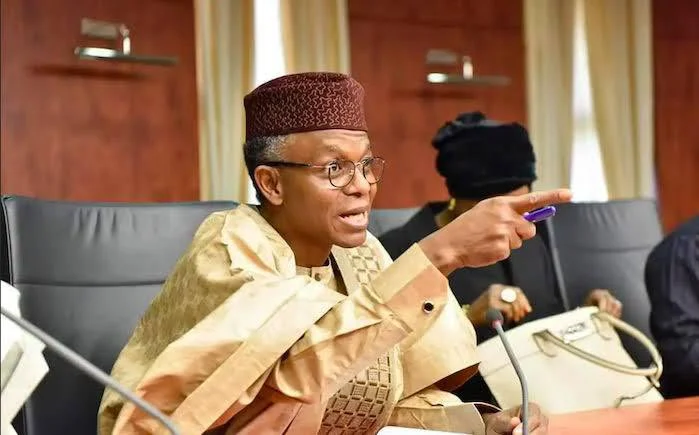
Nasir el-Rufai, former governor of Kaduna, has reminded current office holders that their tenure is temporary, urging them to lead with fairness and keep in mind that “power is transient”.
Speaking in Abuja on Thursday during the public unveiling of Mohammed Bello Adoke’s memoir titled “OPL 245: The Inside Story of the $1.3 billion Nigerian Oil Block”, el-Rufai said Adoke, a former attorney-general of the federation and minister of justice, should be praised rather than targeted for his role in strengthening the nation’s democracy.
He noted, “Everyone knows that Mohammed Bello Adoke was one of those that stood and persuaded President Jonathan to actually concede the 2015 elections.”
According to him, “we should actually thank him as the APC government of 2015, not persecute him.”
Reflecting on his time in government, el-Rufai spoke about the betrayals that often come with public service.
He recalled, “About 12 years ago in this hall, I presented ‘The Accidental Public Servant’, which was a record of my experience in public service at the time, which showed how friends abandon you, betray you, and how those that you’ve been good to turn around against you.”
He continued, “And everyone told me I made a mistake, that I will never go near public service again. Because in Nigeria, when you are in government, you eat, you keep quiet, and you come back, and you remain silent.”
El-Rufai said he had no regrets about his service and believed Adoke had no reason to fear scrutiny.
“I don’t think I had anything to hide in public service, yes. I still don’t,” he said.
“And I know Bello Adoke has nothing to hide. So, you can write a book like that and hold your head high, because you know you did nothing wrong while holding public office.”
He encouraged today’s leaders to act with integrity and always remember how brief time in power can be.
Most Popular
-

 BIG STORY2 days ago
BIG STORY2 days agoJUST IN: US Clarifies New Visa Rule For Nigerians, Cites Global Security Standards
-

 BIG STORY3 days ago
BIG STORY3 days agoREVEALED: Trump’s Visa Clampdown Linked To Nigeria’s Refusal To House Asylum Seekers — TheCable Report
-

 BIG STORY3 days ago
BIG STORY3 days agoTunji-Ojo Meets US Envoy Over New Visa Policy, Says FG Will Curb Overstay By Nigerians
-

 BIG STORY4 days ago
BIG STORY4 days ago“JAPA”: Canada Increases Minimum Proof Of Funds To N17m For Immigrants
-

 BIG STORY4 days ago
BIG STORY4 days agoUK Introduces eVisas For Nigerian Study, Work Visa Applicants
-

 BIG STORY3 days ago
BIG STORY3 days agoLagos Steps Up: Wahab’s Cleanup Blitz And Plastic Ban Herald A New Environmental Era — By Babajide Fadoju
-

 BIG STORY3 days ago
BIG STORY3 days agoNigeria Won’t Bow To US Pressure To Accept Venezuelan Deportees — Foreign Affairs Minister Tuggar
-

 BIG STORY5 days ago
BIG STORY5 days agoLG Polls: Speaker Obasa Charges Lagos West APC Candidates To Intensify Campaigns, Assures Of The Assembly’s Support






